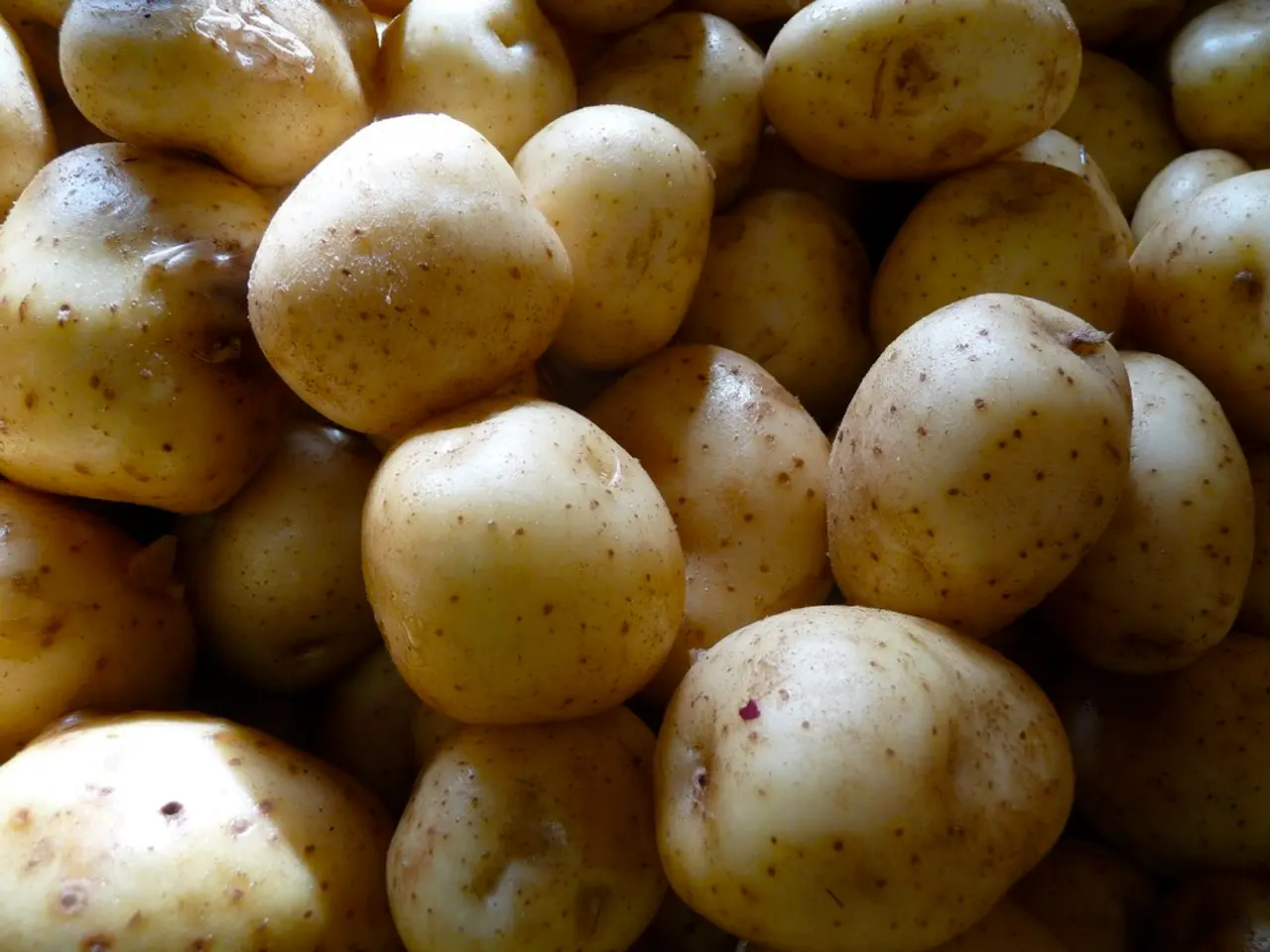Consuming Three Fries Per Week Alerts Diabetes Risk Levels
Potatoes and Diabetes Risk: A Closer Look
A new study conducted by researchers from Harvard and Cambridge has shed light on the relationship between potatoes and the risk of Type 2 diabetes. Contrary to some beliefs, the debate about potatoes and diabetes risk has not been limited to the potato itself, but has considered factors such as the type of potato preparation and possible alternative carbohydrates.
The study found that three weekly servings of potatoes slightly increase the risk of Type 2 diabetes by 5%. However, this increase is not as harmful as previously thought, as eating a similar amount of potatoes in cooked, baked, or mashed form only has a minimal impact. On the other hand, replacing potatoes with white rice has a worse outcome, while three weekly servings of fries increase the risk by 20%.
The increased risk from fries could be due to fats, salt, and compounds formed during frying. In contrast, less processed potato dishes are preferable. The study also suggests that the best alternative carbohydrates to potatoes for reducing the risk of Type 2 diabetes are low glycemic index (GI) carbohydrate sources.
These include sweet potatoes, legumes, barley, rolled oats, whole grains like brown rice and whole wheat bread, most fruits, and non-starchy vegetables. These foods have a lower impact on blood sugar levels compared to high-GI foods like white potatoes. Choosing carbohydrates with a low glycemic index helps control blood sugar by releasing glucose more slowly into the blood, reducing spikes related to diabetes risk.
The study, based on data from cohort studies in the US conducted between 1984 and 2021 with over 205,000 healthy healthcare workers, supports current dietary guidelines that promote whole grain products as part of a healthy diet to prevent Type 2 diabetes. Whole grains should take priority in a healthy and sustainable diet, but potatoes can still have a place.
Potatoes contain vitamin C, magnesium, and fiber, but they also contain a lot of starch and have been partly blamed for increasing diabetes risk in recent years. However, the study found that the participants who consumed potatoes as part of a balanced diet did not show an increased risk of Type 2 diabetes.
In summary, sweet potatoes, legumes, barley, rolled oats, whole grains, and most fruits and non-starchy vegetables serve as the best carbohydrate alternatives to potatoes to help reduce the risk of developing Type 2 diabetes by offering lower blood sugar impact and better glycemic control. Replacing fries with whole grain meals further reduces the risk by 19%. The study also emphasizes the importance of considering the type of potato preparation and the overall diet when discussing the relationship between potatoes and diabetes risk.
- The study conducted by researchers from Harvard and Cambridge found that three weekly servings of potatoes slightly increase the risk of Type 2 diabetes by 5%, but this increase is not as harmful as previously thought.
- Contrary to some beliefs, the debate about potatoes and diabetes risk has considered factors such as the type of potato preparation and possible alternative carbohydrates, like low glycemic index sources such as sweet potatoes, legumes, barley, rolled oats, whole grains, most fruits, and non-starchy vegetables.
- Replacing fries with whole grain meals can further reduce the risk of Type 2 diabetes by 19%, compared to eating three weekly servings of fries which increase the risk by 20%.
- In conclusion, a balanced diet that includes potatoes, combined with fitness and exercise, nutrition, and medical-condition management (such as controlling chronic diseases like Type 2 diabetes through science and health-and-wellness practices), contributes positively to overall health and wellness.




